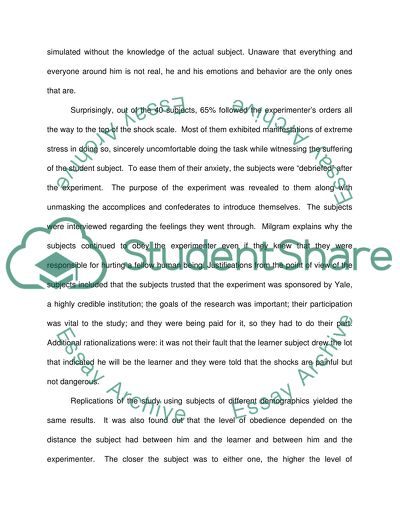Obey at Any Cost Milgram,S. (1963). Behavioral study of obedience Essay. Retrieved from https://studentshare.org/miscellaneous/1543173-obey-at-any-cost-milgrams-1963-behavioral-study-of-obedience-journal-of-abnormal-and-social-psychology-67371-378
Obey at Any Cost Milgram,S. (1963). Behavioral Study of Obedience Essay. https://studentshare.org/miscellaneous/1543173-obey-at-any-cost-milgrams-1963-behavioral-study-of-obedience-journal-of-abnormal-and-social-psychology-67371-378.


